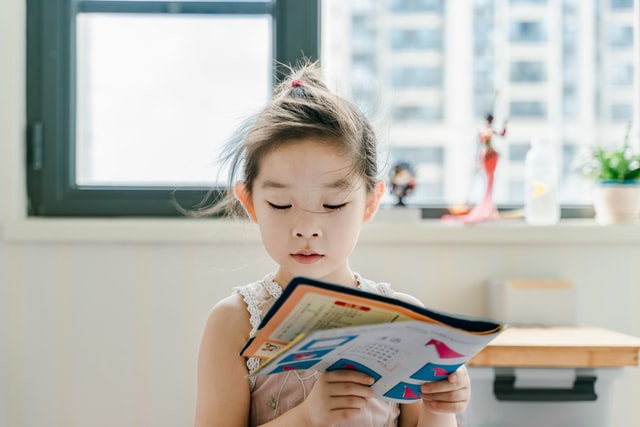Anxiety doesn’t have a set age limit. Even young children can be affected — is yours one of them?
If so, you need to exercise extra patience in your parenting. Instead of minimizing your child’s fears, teach them the tools they need to regulate their emotions for a lifetime. Here are eight tips for parents of children with anxiety.
Teach Them the 3-3-3 Method
If you have anxiety as an adult, you might use the 5, 4, 3, 2, 1 grounding method when panic strikes. This technique involves naming five things you can see, followed by four you can touch, three you can hear, two you can smell, and one you can taste. It works — but it’s a lot for little, stressed-out minds to remember.
Here’s a simpler version for the under-12 set: the 3, 3, 3 method. Your child starts by naming three things they can see, followed by listening for three sounds. Finally, they move three parts of their body. Doing so helps return them to the present moment when panic sends their mind spiraling into future fears.
Practice Deep Breathing
Your breath has the power to calm anxiety. Elongating your exhales, making them twice as long as your inhales, taps into your parasympathetic nervous system — the side of your body responsible for your rest and digest functions. It lets you know that it’s time to relax, and you can practice anytime and anywhere.
Teach your children how to breathe deeply to quiet their anxiety. You can explain the yoga practice of ujjayi breathing by telling them to sound like Darth Vader when they exhale, making a hollow echoing sound over their soft palates.
Investigate Fidget Activities
Remember fidget spinners? They may have fallen from the number one slot on the fad chart, but they still come in handy for children with anxiety. Pick one up for your little one to keep their hands busy when anxiety strikes.
You don’t always have to spend money incorporating fidget activities into your child’s anti-anxiety routine. A simple piece of yarn can serve a useful purpose when you teach them how to play cat’s cradle — there are versions of this game to play solo and with friends.
Get Their Bodies Moving
Exercise quells anxiety by letting the human body do what it was designed for during times of stress: fight back or get out of Dodge by expending physical energy. Taking your child outdoors to run and jump helps moderate their cortisol levels. This stress hormone can wreak havoc in little ones and even contribute to soaring childhood obesity numbers.
Adjust Their Diet
Everything your child consumes affects their physiology, including various neurotransmitter and hormone levels. Getting these in better balance can help quiet anxiety.
Steer your little one toward wholesome snacks like nuts and seeds containing minerals like magnesium for combating stress and depression. Ensure they get plenty of fresh fruits and veggies in every hue to increase their antioxidant intake. Stay away from white sugar and flour, which cause blood sugar spikes leading to behavioral issues.
Try Kiddie Yoga
Children can benefit from the ancient practice of yoga. You only have to explain the practice in age-appropriate terms. For example, you can have them round their spine like a scared Halloween kitty or stand on one leg like a stork.
Adjust Academic Expectations
Making the grade matters. However, it isn’t as important as instilling values like empathy, compassion, and kindness. Think twice before punishing your child for poor academic performance. Doing so could ramp up their anxiety levels, making it even harder to concentrate on their studies.
Instead, treat slipping grades as a sign something is wrong and do some digging, starting by talking with your child. Please don’t begin by accusing them of laziness — merely ask if they can explain the reason behind their lagging performance without fear of punishment. Perhaps they’ve struggled with a certain concept and need tutoring help. It could also be something as simple as an undiagnosed visual impairment making it challenging to see the whiteboard.
Ensure a Good Night’s Rest
Adequate rest is crucial for children with anxiety. A lack of sleep can upset their hormonal and neurotransmitter levels, making them more prone to emotional episodes and the resulting maladaptive behaviors.
Prohibit electronics after bedtime and set a good example by setting up a charging station elsewhere and docking your devices there at day’s end, too. Keep their bedtime as consistent as possible, even on weekends.
Tips for Parents of Children With Anxiety
Anxiety doesn’t know an age limit — it can affect children, too. Parents can play a crucial role in teaching their little ones coping mechanisms to help their child maintain emotional regulation for life. Embrace these eight tips if one of your precious ones has this disorder.

